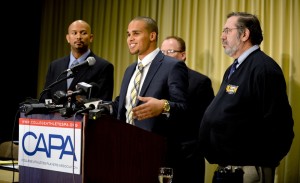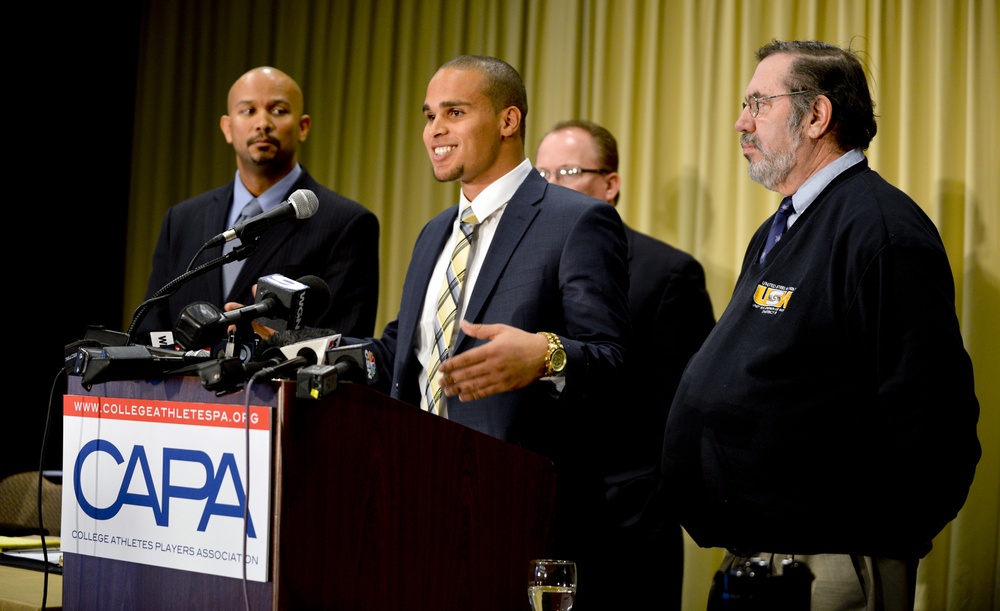I have been provided the opportunity to sit in on a class taught by ESPN and Sports Illustrated writer Andrew Brandt that is called “Business and Legal Aspects of Professional Sports.” Brandt is teaching the class through Villanova University’s online offering, which makes it easy for anyone to access the content.

Labor issues comprise a big portion of Sports Law. One of the most widely publicized issues concerns the ongoing battle between the National Football League and Tom Brady, which focuses on an effort to confirm or vacate (depending on the party) an arbitration decision made by Commissioner Roger Goodell that suspends Brady for the first four games of the 2015 NFL regular season without pay.
But Brady is not the only labor issue that is highly relevant at the moment. A couple of days ago, the National Labor Relations Board (NLRB) declined to assert jurisdiction in a pending matter that would have provided Northwestern University football players with the option to unionize. The NLRB essentially held that it does not have jurisdiction to preside over the matter because it cannot control how state-run colleges and universities deal with college athletes.
The decision stated, in part, “the Board held that asserting jurisdiction over a single team would not promote stability in labor relations across the league.” The league is assumed to be a reference to the NCAA.
Northwestern University has since released a statement demonstrating that it is pleased with the NLRB’s decision, which reads less like a decision and more like an opportunity to decline making a difficult ruling.
The statement claims that, “Because the NLRB declined to assert jurisdiction in the case and dismissed the petition, the union election held in April 2014 is moot and the votes of Northwestern scholarship football players cast at that time will not be counted.”
A debate over whether college athletes are primarily students or athletes will continue. That also questions whether those athletes should be considered employees of the universities they perform for based on time spent on athletic preparation, control by the team and other workplace factors. Northwestern may have won this round, but college athletes are not done fighting for additional rights.
Economist Andy Schwarz has some strong thoughts on what the NLRB’s “decision” means for college athletes. He writes, “Until we can find a way to overcome that built-in home-field advantage that comes from people who THINK they understand why college sports are so egg-shell fragile they cannot exist under the American system of capitalism, it seems like the efforts to have college athlete recognized as full participants in the American economy will face uphill struggles.”
If you’re interested in learning more about Villanova’s online sports program, please visit VillanovaU.com/SABSponsor.
